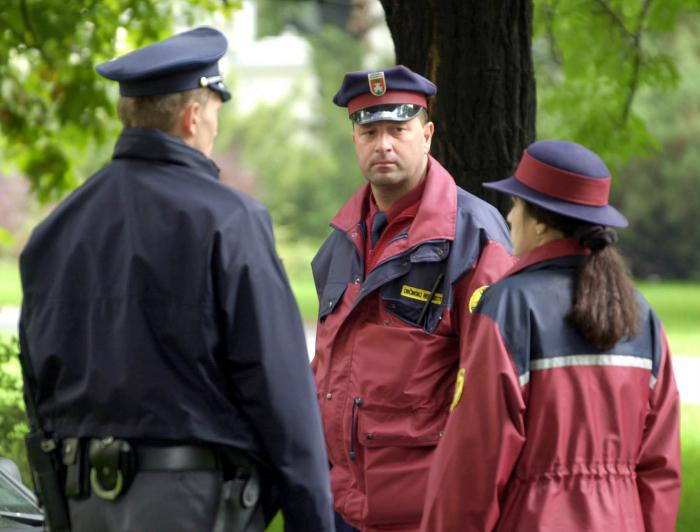
The government confirmed the amendments to the Act on Local Police last week. The Ministry of Public Administration said the main reason for the amendments was that the current law was one decade old and that several other laws affecting the work of municipal wardens have been changed in that time. Such examples are the acts on local self-governance, minor offences, civil servants and on personal data protection.
A key change in the new legislation will be the increase of powers granted to municipal wardens. They will be able to use bodily force and coercive measures, like for example pepper spray, against offenders.
The Act on Local Police which is still in force, currently allows city and municipal traffic wardens to detain a person. However, if that person does not follow a warden's instruction and decides to leave the site, wardens have no rights to stop and detain that person with "bodily force" or the use of pepper spray. The use of such action is only allowed if wardens are attacked i.e. if the warden "has no other way to prevent an unlawful attack on himself or someone else". In short, if the amendments are confirmed by the National Assembly, that will all change.
The amendments to the Act on Local Police envisage changes to Articles 13 and 14, which will enable municipal wardens to use physical force and pepper spray in situations when a person does not follow a warden's instructions. Wardens will however at all times need to respect the principle of proportionality. "That is why wardens will always opt for the mildest coercive measure, most appropriate to the given situation", explained the Ministry of Public Administration.
Following the government's confirmation of the amendments, the Minister of Public Administration, Boris Koprivnikar, explained that the changes to the act "in no way mean that we are becoming a police state," and added that up to now there have been very little cases of wardens using "means of detention".
The biggest number of cases of wardens using force in self-defence were recorded in Ljubljana. In the last five years there have been 18 registered criminal offences of attacks on "officials" or the prevention of such attacks in the capital. At the same time, judging by our inquiries, in many Slovenian municipalities there have been no such incidents involving municipal traffic wardens.

































































